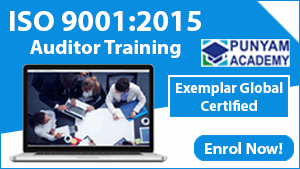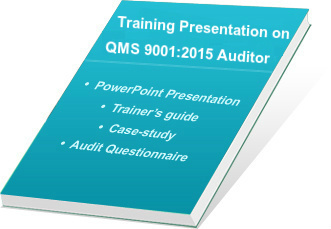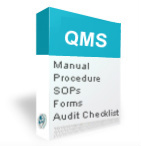ISO 9001 is a global standard that sets the standards for a quality management system (QMS). The standard is used by organizations to demonstrate their capacity to consistently deliver goods and services that fulfil consumer and regulatory demands.
What Exactly is a Quality Management System (QMS)?
A quality management system (QMS) is a written record of an organization’s procedures and objectives that have been modified to satisfy quality goals. Teams may concentrate on high-impact tasks as they ensure high-quality goods, customer happiness, and effective activities.
ISO 9001 Quality Management System’s Components
The nine components of a quality management system are document control, organizational structure and duties, quality manual, data management, processes, customer satisfaction with product quality, and continual improvement.
- Quality Objectives and Quality Policy
A quality policy is a formal declaration of an organization’s dedication to quality and its plan for fostering, preserving, and enhancing quality. Organizations establish specific business goals or quality goals to make sure they are in line with quality policies. The ISO 9001 standard establishes both quality objectives and policies.
The quality objective and policy below can be used by organizations as an illustration:
Quality Guidelines: Ensure consumer happiness
Maintain at least 95% client happiness as a quality goal.
- Quality Manual
A quality Manual is a document that provides an overview of the organization’s quality practices as well as the justification for putting in place a quality management system. The manual for quality should contain the requirements of any QMS standard, such as ISO 9001, if that is a single of the factors driving the setting up of a QMS.
- Responsibilities and Organizational Framework
Any significant project must have unambiguous works delegation and declarations of project ownership. As a significant project, a quality management system should follow the same guidelines. Upper-level management can enable a more seamless and thorough QMS deployment by giving each employee in the corporation a quality-focused role.
- Management of Data
For businesses to create, improve, or adopt a Quality Management System (QMS), data management is essential. It entails locating sources, collecting data, organizing it, storing it, and then analysing it to make changes.
- Processes
The most important steps in preparing for an ISO 9001 audit, whether internal or carried out by a third party for ISO 9001 certification, are documenting, comprehending, and evaluating the processes of an organization. The quality management system must track and evaluate any process which has an impact on the quality of goods and services.
- Quality of the Product and Customer Satisfaction
It is first vital to determine precisely how to assess customer satisfaction to be able to prove that consumers are satisfied with the product quality and show the company’s capacity to satisfy and even exceed their expectations. Conducting client satisfaction surveys is one choice; this can be done by email, the company website, or a digital kiosk located on the premises.
- Control of Documents
Despite the similarities between control over documents and data management, document control is distinct because it places more of an emphasis on recordkeeping. On the other hand, the objective of data management is to extract the necessary data from the data gained.
- Quality Instrument:
By comparing goods to predetermined standards, quality devices like temperature sensors are used in the food sector to assess product quality and ensure maintenance of quality.
- Continual Enhancement
Organizations must continuously improve their quality and performance to become certified under ISO 9001, which places a strong emphasis on continuous improvement.
ISO 9001 Certification Consultancy
Punyam.com is the best ISO 9001 consultant in India offers onsite and offsite consulting for ISO 9001. The ISO 9001:2015 certification solely focuses on working techniques, which compels an organization to build a quality management system; it does not certify the company’s products.
.




